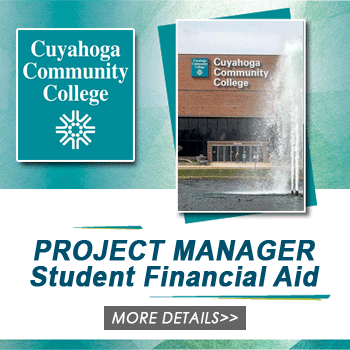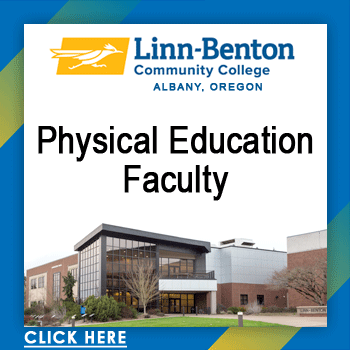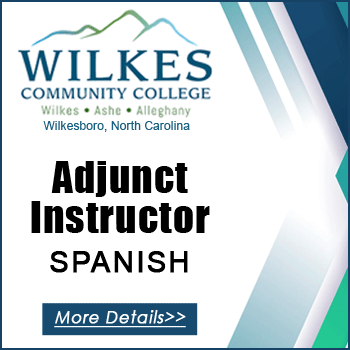
Instructor Welding - Adjunct Pool
Job Description
We are currently seeking an Adjunct Welding Instructor who will advance the institution’s proud tradition of excellence in academics, student life and community service.
The Opportunity
We’re looking for a professional like you to teach our students about the exciting world of welding.
Your professional experience makes you the ideal instructor because you can impart both on-the-job know-how and industry knowledge and expertise.
When you’re not teaching, you might be assisting students with opportunities for work (co-ops, part-time, work-study) and careers; evaluating program curricula and/or practices; advising declared majors; or reviewing textbooks and learning materials.
If you’re excited about passing the torch of your expertise and skills to the next generation of welders, your next step should be to submit your application today!
If this sounds like the role for you and you’re ready to join an amazing team, please apply right away.
SUMMARY
Provide the expertise and knowledge that support the college curriculum and programs. Establish courses following accepted higher education standards, teach students using a variety of effective methodologies and provide engagement and support activities that encourage student learning. The role of the Instructional Faculty encompasses teaching and learning, academic advising, professional development and institutional and community service.
The incumbent will teach a maximum load of (See Faculty Workload Guidelines) contact hours each semester in area(s) of competency and participate as a full-time instructor in the activities of the department, division and college.
ESSENTIAL DUTIES AND RESPONSIBILITIES include the following. Other duties may be assigned.
1. Teaching:
a. Demonstrate skill and/or knowledge in teaching discipline;
b. Make continuous efforts to improve the quality of instruction by reviewing and utilizing innovative methodologies, techniques, and delivery methods;
c. Develop and use a syllabus for each course or laboratory within college, discipline, and departmental guidelines and submit one copy to the department chair;
d. Plan, develop, and use a variety of teaching methods and materials that assist students in meeting course objectives and which are appropriate for students with differing educational and experiential backgrounds and learning styles;
e. Evaluate students to measure their progress toward achievement of stated course objectives and inform them of their progress in the course in a timely manner;
f. Keep accurate student records and submit related reports and forms within requested timelines;
g. Review, evaluate, and recommend student textbooks and learning materials;
h. Teach courses at a variety of times and locations in response to institutional needs;
i. Use equipment and facilities responsibly and courteously. Where appropriate, assist the chair with the routine maintenance of instructional laboratories and
j. Demonstrate competence and interest in the use of technology in the classroom and willingness to explore new instructional methodologies.
2. Academic Advising:
a. Maintain professional relationships with students, colleagues, and the community;
b. Provide access to students through posted office hours, electronic communication, and other appropriate methods. Provide advice and assistance to students regarding instructional or program-specific issues;
c. Make presentations on a particular academic field or program - its subject matter, objectives, opportunities for further study (transfer opportunities), and opportunities for work (co-ops, part-time, work-study) and careers, special clubs and activities available, support services, scholarships, etc.;
d. Create and maintain a website dedicated to the types of information specified in bullet three and
e. Work with Chair to take on appropriate academic advising activities as needed by the College and Department. (For examples, please refer to the HCC Faculty Workload Guidelines).
3. Professional Development:
a. Establish annual objectives for professional growth in consultation with the department chair;
b. Keep pace with developments in the discipline;
c. Learn and apply technologies that support student learning and
d. Participate in the evaluation process for self, department, and college.
4. Institutional and Community Service:
a. Works collaboratively with HCC engineering technology programs;
b. Assist in bringing ABET accreditation to HCC and to help insure quality in course offerings consistent with ABET standards;
c. Work collaboratively with the West Houston Center Director in the coordination of conferences, meetings, workshops, and outreach activities in science, technology, engineering, and mathematics;
d. Participate in scheduled institutional service activities including opening week events, conference days, and commencement exercises;
e. Participate in discipline committee or program meetings and activities;
f. Actively participate in department, college or system meetings and/ or committees;
g. Be familiar with and adhere to all policies and procedures of HCCS;
h. Participate in college-related activities such as student activities, selection of faculty, community education, recruitment of students, and/or special programs;
i. Participate in business and/or student activities and/or community activities that foster goodwill and promote the mission of HCCS;
j. Participate in activities required to maintain program and college accreditation standards;
k. Participate in the HCCS planning process by assisting in the formulation of departmental objectives and goals and in establishing budget priorities;
l. Review, evaluate, and revise program curricula and practices to assure compliance with professional standards, state-mandated guidelines and requirements of business/ industry, and higher education and
m. Assist in the articulation of courses and programs with secondary and post-secondary institutions.
QUALIFICATIONS
To perform this job successfully, an individual must be able to perform the essential duties and responsibilities listed above. The qualifications listed below are representative of the education, experience, knowledge, skills, and/or abilities required.
EDUCATION
Associate’s degree or higher required; official transcript(s) conferring degree must accompany the application). Five (5) years directly related experience in welding may be substituted in lieu of degree.
Bachelor’s degree preferred.
Three (3) years of direct work experience in the field, preferably within the last ten (10) years.
KNOWLEDGE, SKILLS AND ABILITIES
- Ability to repair, maintain and operate all machines and tools;
- Ability to climb a ladder to retrieve and replace materials and supplies;
- Ability to lift up to 50 pounds;
- Possess the ability to work in a diverse work environment;
- Willing and able to teach day or evening classes at a number of sites around the city;
- Knowledge and skill in a variety of computer usage and software are required;
- Excellent interpersonal skills and the ability to communicate effectively with a diverse professional, community, and student population;
- Possess good organizational and planning skills;
- Demonstrate sensitivity to students with diverse academic, socio-economic, cultural and ethnic backgrounds and students with disabilities;
- Demonstrated ability to inspire and motivate students in a learning-centered environment; and
- Self-disciplined and able to effectively manage others.
The Organization
- Fourth-largest city in the U.S. and home to 54 Fortune 500 companies, second only to New York City’s 55.
- About 145 languages are spoken here.
- Overall after-taxes living costs are 5.6 percent below the average for all 308 urban areas recently surveyed.
- Houston is a major-league sports town, and don’t forget the annual Houston Livestock Show & Rodeo.
- The weather is great! Mild winters ensure that outdoor activities can be enjoyed year-round.
- World-renowned medical care. The Houston metro area has long been known for its first-rate healthcare system, with many Houston area hospitals consistently ranking among the nation’s top institutions.
- With over 150 museums and cultural institutions in the Greater Houston area, museums are a large part of Houston’s cultural scene.
- Houston is the Culture & Culinary Capital of Texas with more than 7,500 restaurants and eating establishments covering 60+ cuisines.
Office of Equal Opportunity and Title IX (EO/TIX)
*Please mention you saw this ad on DisabledInAcademia.*
Be Seen By Recruiters at the Best Institutions
Create a FREE Profile to be Seen!






